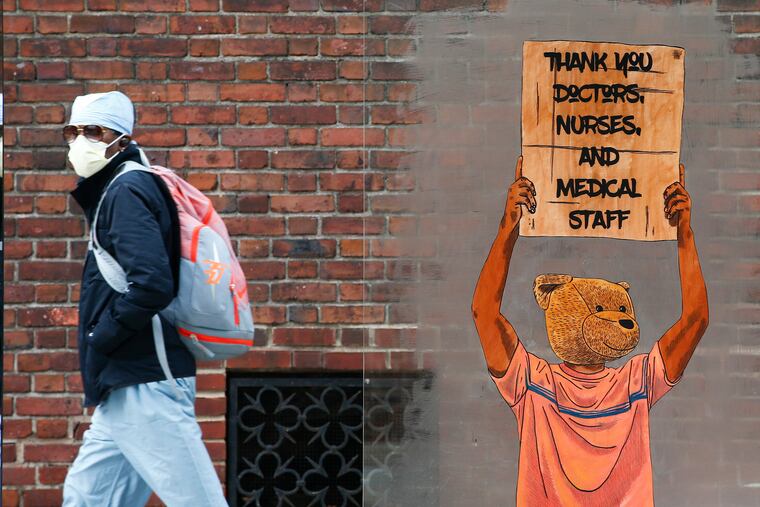Without a Pell Grant, I couldn’t pursue my nursing degree. Now Congress might take it away. | Opinion
Build Back Better excludes career and technical institutions from Pell Grants, harming 900,000 students.

I always knew I was interested in nursing. To please my parents, I pursued a degree in business administration at Penn State but never finished. Instead, I worked in customer service and recruiting. The pandemic, for me, was a wake-up call. I watched Philadelphians opening their doors and windows to cheer for health-care workers — they were heroes, and I wanted to join them. The need was urgent, so I began to pursue my calling.
Today, I’m a single parent and work as a home care aide Monday through Friday from 8 a.m. to 5 p.m., except on Wednesdays when I work a 12-hour shift. On top of my work week, I attend class on Thursdays from 6 to 10 p.m., and every other weekend. I’m proud to say that I’m on the path to becoming a licensed practical nurse. I have no free time, but it’s all worth it because I’m working harder than ever to gain the hands-on skills that will make me a valuable member of any health-care team I join.
I am worried, however, that I won’t be able to fulfill my aspirations to become an essential worker because of a debate that is happening right now in Congress. The Biden administration’s Build Back Better bill has a section dedicated to higher education, specifically financial aid. The administration’s intention was to make college more accessible for lower-income students. But by leaving some students out — specifically, those attending career and technical institutions — it’s doing the exact opposite.
I’m one of the approximately 900,000 Pell Grant recipients who attend technical and career-oriented institutions. But because of the type of school we attend, students like me could be barred from accessing the $550 Pell Grant increases that students at nonprofit or public schools will receive. We’re being discriminated against simply because of the school we chose to attend and the career we want to pursue.
This discriminatory approach to federally funding higher education must be stopped. It’s nonsensical that Congress is making it harder for nontraditional students like me to join the ranks of essential workers who take care of Americans when they’re sick and in need.
Career and technical institutions make education accessible for nontraditional students to achieve our career dreams while balancing our responsibilities as caretakers and providers. With all my financial and family responsibilities, traditional schooling to become a registered nurse has never been an option.
Similarly, many of my classmates pursuing four- or two-year degrees have chosen to get the credentials they need at a technical college that better supports their life circumstances. In 18 to 24 months, depending on their program, they can land a better-paying job, with the hands-on skills they need to perform in their chosen field.
America desperately needs this kind of skilled workforce. Health-care workers have suffered thousands of deaths and high burnout rates during the pandemic. Thirty percent of them either lost their jobs or quit after February 2020. The U.S. already faced a massive shortage of nurses. Now we need 11 million additional nurses to avoid a further shortage.
Even though the additional $550 Pell Grant may not sound like a lot of money for many people, for a single, working mom like me, those extra dollars are essential. Without them, I might not be able to finish my degree. And I am not alone. Fifty-one percent of Pell Grant funds go to students whose families earn less than $20,000 annually. When you’re living paycheck to paycheck and taking care of a family, there are so many expenses. Every little bit helps.
Whether nontraditional students are beginning their careers, transitioning as I did from another field, or reentering the workforce, a career and technical institution can open the door to improving our lives. Nearly a million Americans are studying right now to become our future nurses, EMTs, and technologists, and they’re being discriminated against simply because of their choice of schools.
The nation urgently needs these essential workers. We can’t afford to put more financial hurdles in their way.
I’m asking Congress to stop discriminating against students like me who are working hard to make life better for our families, our communities, and the future of our country. All students deserve equal treatment — and access to federal student aid — in the next iteration of the Build Back Better bill, regardless of where they go to school.
Desrine Prayer is a nontraditional student in Philadelphia who is pursuing her practical nursing degree.